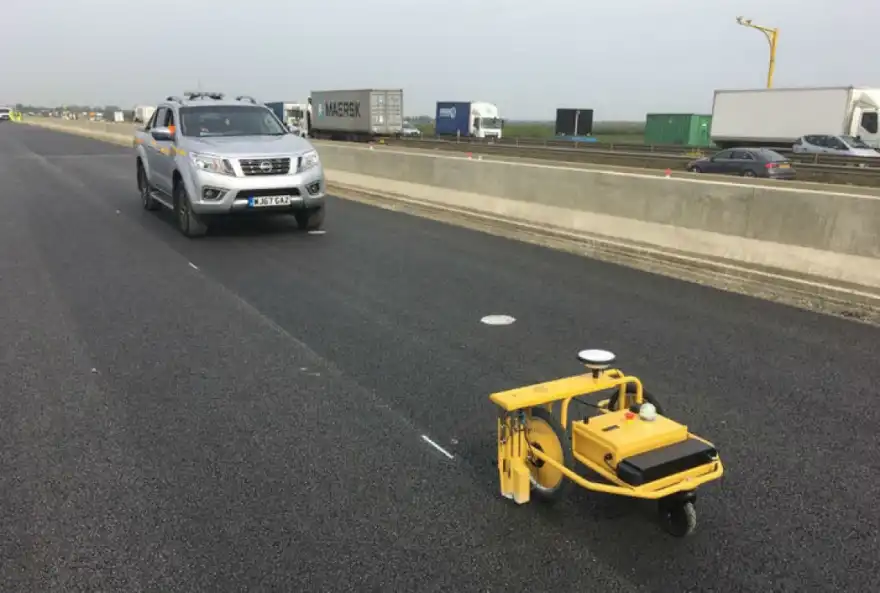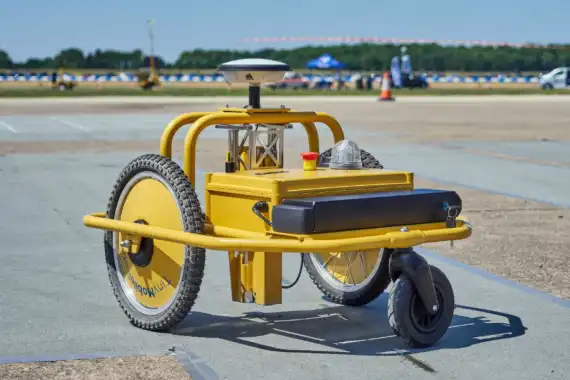
How robot cuts roadwork delays
A new, revolutionary robot ensures motorists spend less time delayed by roadworks by reducing construction time on major projects in England, Highways England revealed. It therefore slashes journey times, minimises frustration, and ensures that vehicles spend less time on the roads emitting pollutants. But how?
Naturally, a road incorporates white lines that amongst other things separate its lanes. The positions of these lines must be pre-marked on the final surface before painting. Prior to the invention of the robot this job was slow, dangerous and monotonous.
For starters, it required a worker to calculate the positions of the white lines, walk the route (which was typically several miles), and lean over to mark the positions with, for instance, chalk. The task was therefore physically demanding – particularly on the back as it involved a lot of bending over. That was a worry.
Furthermore, the worker risked being struck by vehicles that ventured into the construction zone. Highways England calculated that two-hundred and fifty motorists illegally drive through roadworks every month. That equates to about three thousand a year.

Description of robot
The robot is a small, yellow, tubular machine that minimises such problems as it autonomously marks where the lines have to be painted. It is about the size of a wheelbarrow and has bicycle-style wheels at the rear, and a caster wheel at the front. It also contains systems which let it recognise its position and manoeuvre.
Huge time savings
The robot has already saved a significant amount of time for motorists and construction workers. Consider the M6 in Staffordshire, for example. Here, it pre-marked eight miles of road in only four hours. Without the robot, this task would have taken two construction workers more than one week. Other savings include:
- M1 in Leicestershire (6 hours)
- M4 in Berkshire (27 hours)
- M6 in Warwickshire (77 hours)
Furthermore, the new robot enables construction workers to concentrate on more complicated tasks that cannot be completed autonomously. This, in turn, further minimises construction time plus any delay, frustration, and inconvenience experienced by motorists. This robot has therefore been warmly praised by workers.
Construction Director, Julian Lamb, is one such fan. He said: ‘We are always looking at innovative ways of working that help road users and make our projects more efficient.’ He particularly likes that the robot minimises construction time and the risk of workers being hit by traffic. ‘It a great solution’, Julian Lamb concluded.




